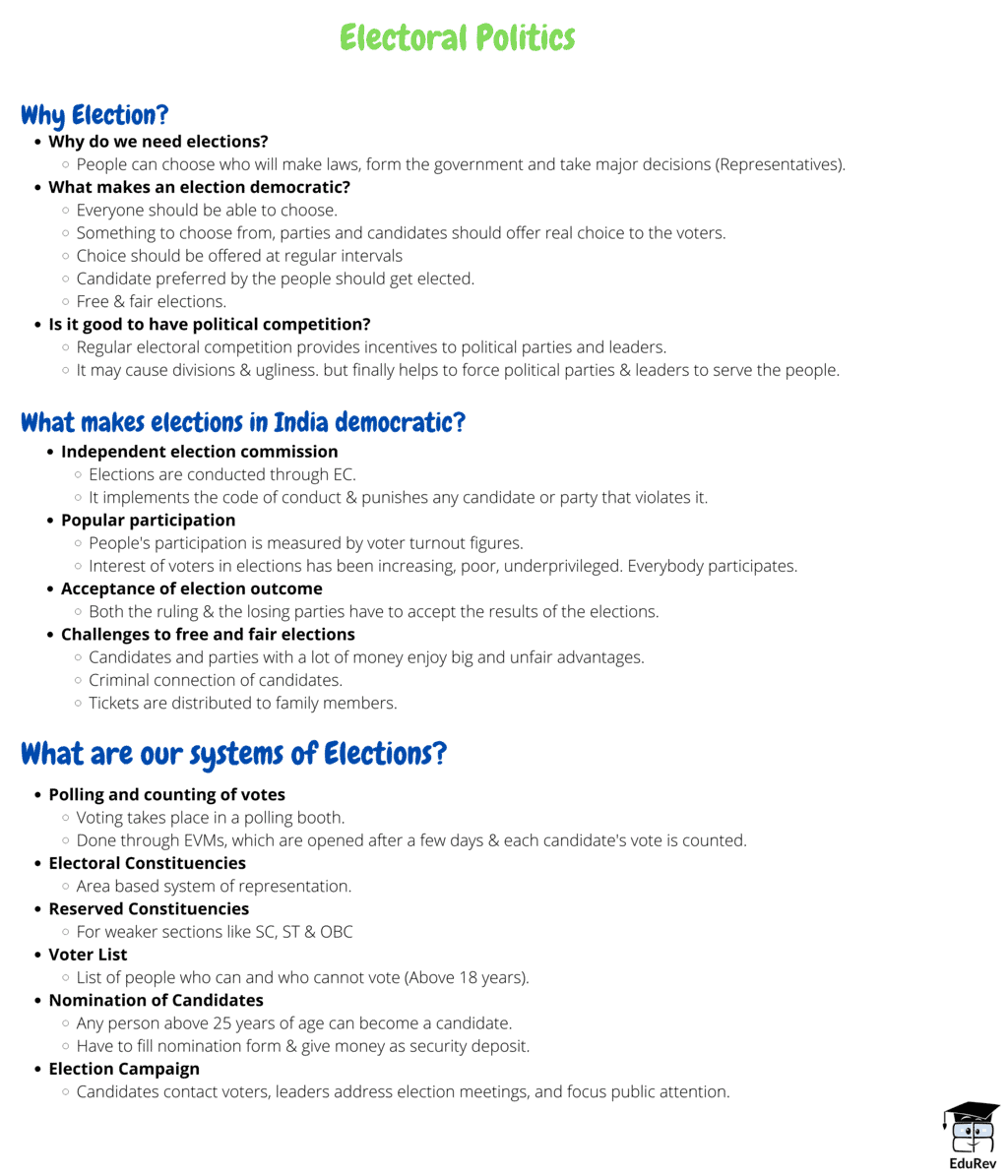Class 9 Exam > Class 9 Notes > Subject-Wise Mind Maps for Class 9 > Mind Map: Electoral Politics
Mind Map: Electoral Politics | Subject-Wise Mind Maps for Class 9 PDF Download

The document Mind Map: Electoral Politics | Subject-Wise Mind Maps for Class 9 is a part of the Class 9 Course Subject-Wise Mind Maps for Class 9.
All you need of Class 9 at this link: Class 9
FAQs on Mind Map: Electoral Politics - Subject-Wise Mind Maps for Class 9
| 1. What is electoral politics? |  |
Ans. Electoral politics refers to the activities, strategies, and processes involved in gaining and exercising power through elections. It encompasses the selection of candidates, campaigning, voter participation, and the overall democratic process of electing representatives to public office.
| 2. How does electoral politics work? |  |
Ans. In electoral politics, candidates or political parties compete for public office by running campaigns to persuade voters to support them. Voters then cast their votes for their preferred candidate, and the candidate who receives the most votes wins the election and assumes the office. Electoral politics also involves political parties, fundraising, advertising, debates, and various methods to engage and mobilize voters.
| 3. What role do political parties play in electoral politics? |  |
Ans. Political parties play a significant role in electoral politics. They provide a platform for candidates, mobilize resources and support, and help shape public opinion. Parties often promote their ideologies, policies, and candidates through campaigns and other activities to gain public support and win elections. They also play a crucial role in organizing and coordinating political activities at local, regional, and national levels.
| 4. How does voter participation impact electoral politics? |  |
Ans. Voter participation is essential in electoral politics as it determines the outcome of elections and shapes the political landscape. When more people participate in elections, it reflects a more representative and inclusive democracy. Higher voter turnout indicates a more engaged and politically active citizenry, which strengthens the legitimacy and fairness of the electoral process.
| 5. What are the challenges faced in electoral politics? |  |
Ans. Electoral politics faces several challenges, such as voter apathy, voter suppression, misinformation, campaign financing, and gerrymandering. Voter apathy refers to a lack of interest or motivation to participate in elections, which can undermine the democratic process. Voter suppression involves barriers or tactics that restrict certain groups from exercising their right to vote. Misinformation and disinformation can distort public opinion and influence electoral outcomes. Campaign financing issues can lead to unequal access to resources and excessive influence by wealthy individuals or corporations. Gerrymandering is the manipulation of electoral boundaries to favor a particular political party, which can undermine the fairness of elections.
Related Searches
















